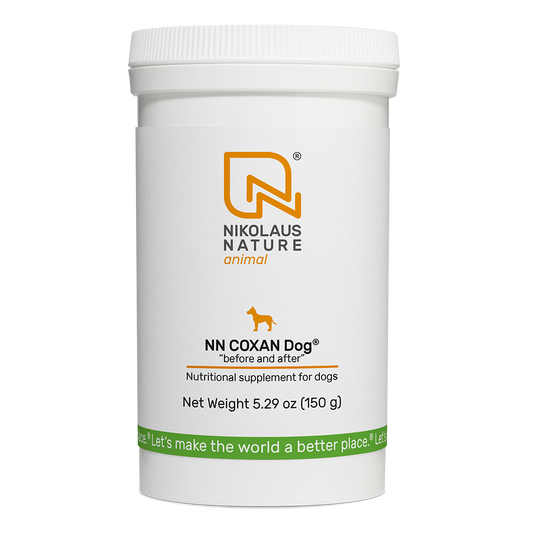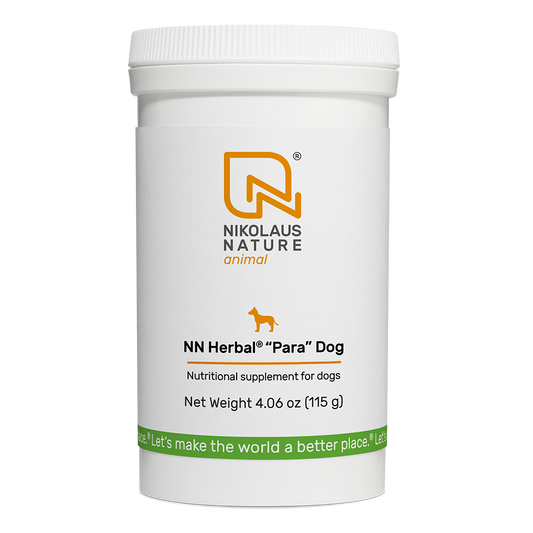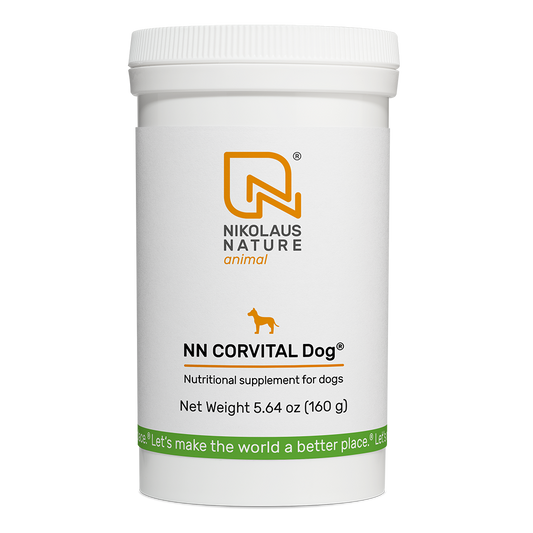Understanding Common Ailments in Senior Dogs
No matter how many birthdays go by, our dogs will always be the playful, happy pups with whom we fell in love. But as much as we wish they’d stay young forever, aging is a natural part of life for our furry friends.
While it’s tough to admit they’re getting older, paying attention to the health changes that come with age is the best gift we can give them. From slowing down on walks to subtle changes in behavior, your senior dog might be trying to tell you something.
Keep reading to learn about the most common ailments senior dogs face, how to spot them early, and what you can do to keep your best friend feeling their best.

What Are Common Ailments in Senior Dogs?
Senior dogs are more likely to develop chronic conditions due to wear and tear on their bodies, changes in metabolism, and a weakening immune system. Common issues include joint pain, heart problems, and diseases that affect vital organs like the kidneys or liver. Older dogs may also lose their vision or hearing and experience cognitive decline.
It’s also important to remember that smaller breeds like Dachshunds and Chihuahuas tend to live longer and may show signs of aging later, often in their teens., while larger breeds like Great Danes or Mastiffs age more quickly and may develop ailments as early as six to eight years old.
Dogs with a healthy diet, regular exercise, and preventive care (e.g., vaccinations and parasite control) are less likely to face serious health issues as they age.
Common Health Issues and Ailments in Senior Dogs
When dogs age, they experience many of the same health challenges we do. While some ailments are minor and manageable, others can significantly affect mobility and comfort.
Below are some of the most common problems older dogs face and what you can do to help:
Arthritis
Arthritis, especially osteoarthritis, is one of the most common problems in senior dogs. It happens when the cartilage in the joints wears down, leading to pain, stiffness, and difficulty moving. You might notice your dog avoiding stairs, struggling to jump onto furniture, or hesitating to go on walks. They may also have trouble getting up after lying down.
Your vet may prescribe anti-inflammatory medications to manage arthritis. Joint supplements like NN COXAN Dog can also help improve joint health.
Low-impact exercises such as swimming are great for keeping your dog active without straining their joints. Orthopedic dog beds and warm compresses can also provide comfort.
Hip Dysplasia
Hip dysplasia is a condition where the hip joint doesn’t fit properly into its socket. While hip dysplasia is often genetic and more common in large breeds like German Shepherds, Labradors, and Golden Retrievers, its symptoms usually worsen with age.
Signs to watch for include limping, a “bunny hop” gait, or noticeable weakness in the hind legs. In severe cases, the joint can become arthritic, making the condition even more painful.
Managing hip dysplasia often involves similar treatments as arthritis, but in severe cases, surgery may be recommended. Weight management is key here—keeping your dog at a healthy weight can significantly reduce the stress on its hips.
Cushing’s Disease
Cushing’s Disease, or hyperadrenocorticism, is caused by an overproduction of cortisol, a hormone that helps regulate stress, metabolism, and immune response. While cortisol is essential, too much can lead to a range of symptoms, including excessive thirst and urination, increased appetite, hair loss, and a pot-bellied appearance.
Cushing’s is common in middle-aged and senior dogs, mainly breeds like Poodles, Dachshunds, and Terriers.
Diagnosis typically involves blood tests and ultrasounds; treatment depends on the underlying cause. Medications like trilostane or surgery to remove an adrenal tumor may be recommended.
Heart Disease
Heart disease is another condition that senior dogs are more prone to develop. Symptoms can include coughing (especially at night), shortness of breath, fatigue, and a decreased interest in physical activity.
Smaller breeds, like Cavalier King Charles Spaniels, are particularly susceptible to conditions like mitral valve disease, while larger breeds may experience issues like dilated cardiomyopathy. You might also notice swelling in their abdomen due to fluid buildup.
Regular vet checkups, including X-rays and echocardiograms, are essential for detecting heart problems early. Medications can help manage symptoms by improving heart function and reducing fluid retention. A low-sodium diet and weight control also play a big role in supporting heart health.
For natural heart support, add NN CORVITAL - Dog Heart Supplement to your dog's diet. It is formulated with natural ingredients to promote cardiovascular health at every stage of life.
Vestibular Disease
If your senior dog suddenly seems off-balance or starts walking in circles, it might be vestibular disease, often called "old dog vestibular syndrome."
The vestibular system, responsible for balance and spatial orientation, can malfunction due to brain problems, infections, or other underlying conditions. This issue is common in older dogs and can be alarming to witness, but it isn’t life-threatening and often resolves with time.
Treatment depends on the cause. If an ear infection is the culprit, antibiotics can help. If it’s idiopathic (no known cause), supportive care like anti-nausea medication, help with mobility, and ensuring your dog stays hydrated can make recovery easier.
Most dogs show significant improvement within a few days to weeks, but some may retain a slight head tilt.
Diabetes
Diabetes, particularly in older dogs, is on the rise, much like in humans. It occurs when the pancreas doesn’t produce enough insulin, or the body can’t properly use it. Dogs with diabetes often show signs like excessive thirst and urination, weight loss despite a normal or increased appetite, and lethargy.
Certain breeds, like Miniature Schnauzers, Dachshunds, and Beagles, are more prone to diabetes, and obesity increases the risk.
Treatment usually involves a combination of insulin injections, a high-fiber, low-fat diet, and regular blood sugar monitoring. Early diagnosis and consistent care are vital to prevent complications like cataracts, urinary tract infections, or diabetic ketoacidosis (a life-threatening condition).
Blindness
Blindness can be gradual in older dogs or occur suddenly due to conditions like glaucoma, cataracts, or retinal degeneration. You may notice your dog bumping into furniture, hesitating at stairs, or showing increased anxiety in unfamiliar environments.
While blindness can’t always be reversed, dogs are incredibly resilient and adapt well to your support. Keep furniture in the same place, avoid moving their food and water bowls, and use tactile or scented cues to help them navigate. With a bit of patience and extra care, blind dogs can still live happy, fulfilling lives.
Dog Kidney Disease
Kidney disease is a common ailment in senior dogs and can range from acute (sudden onset) to chronic (developing gradually over time). Chronic kidney disease (CKD) is more common in older dogs and occurs when the kidneys lose their ability to filter waste from the bloodstream efficiently.
Early signs include increased thirst, frequent urination, weight loss, and vomiting.
Managing kidney disease often involves dietary changes, such as switching to a low-protein, low-phosphorus diet to reduce the workload on the kidneys. Your vet may also recommend medications, fluid therapy, and regular blood tests to monitor your dog’s condition.
Dental Problems
Dental health often gets overlooked, but it’s essential for your dog’s well-being. Senior dogs are prone to issues like gum disease, tooth decay, and infections, which can cause pain and make eating difficult. Bad breath, drooling, and difficulty chewing are common signs of dental trouble.
Regular dental cleanings at home with a dog-safe toothbrush or at the vet can prevent many problems. Dental chews and toys can also support oral hygiene but are not a substitute for vet care. Healthy teeth can make a big difference in their daily comfort and nutrition.

Cognitive Dysfunction
As dogs age, their mental sharpness may begin to decline — canine cognitive dysfunction (CCD) or dementia, a condition similar to Alzheimer’s in humans. You may notice your dog acting confused, getting stuck in corners, forgetting commands, or having accidents indoors. Changes in their sleep patterns, like restlessness at night, can also be a sign.
While CCD can’t be cured, its progression can often be slowed with a combination of treatments. Mental stimulation through puzzle toys, regular routines, and medications or supplements like omega-3 fatty acids, antioxidants, or SAMe (S-adenosylmethionine) can support brain health.
Obesity
Obesity is a significant concern for senior dogs, and unfortunately, it can worsen many age-related conditions like osteoarthritis, diabetes, and heart disease. In old age, dogs' metabolism slows, and they may become less active, making it easier for the pounds to creep on.
Signs that your dog may be overweight include difficulty feeling its ribs, a lack of a visible waistline, or fatigue during exercise. Regular weigh-ins at the vet can help track your dog's progress.
Managing obesity starts with proper diet and exercise. Opt for a senior dog food that’s lower in calories but still packed with nutrients. Portion control is key, as is avoiding table scraps and calorie-laden treats.
Low-impact activities, like short walks or swimming, can help your dog stay active without putting undue stress on their joints. If you’re unsure about your dog’s ideal weight or diet, your vet can help create a tailored plan.
Cancer
Hearing the word “cancer” is every pet owner’s fear, but the reality is that cancer is more common in senior dogs. Lymphoma, osteosarcoma and hemangiosarcoma are some common cancers.
Both benign and malignant tumors can appear as lumps under the skin, but not all cancers are immediately visible. Other signs include unexplained weight loss, changes in appetite, or unusual lethargy.
If you suspect something is off, schedule a vet visit promptly. Treatment depends on the type and stage of cancer. Options may include surgery, chemotherapy, radiation, or a combination of these.
While not all cases are curable, advancements in veterinary oncology have made it possible to extend a dog’s life and keep them comfortable for longer.
Signs of Failing Health in Older Dogs
Here are some key indicators that your senior dog might be struggling:
- Decreased Energy or Mobility: If your once-playful pup is sleeping more or struggling to get up, it might indicate conditions like arthritis, osteoarthritis, or general pain.
- Appetite Changes: A loss of appetite could signal dental issues, kidney disease, or even cancer. Conversely, increased hunger may point to diabetes or Cushing’s disease.
- Weight Changes: Sudden weight loss or gain can indicate underlying health problems, such as thyroid disorders, kidney disease, or obesity-related issues.
- Changes in Bathroom Habits: Increased urination, accidents in the house, or trouble defecating can be signs of diabetes, kidney problems, or cognitive dysfunction.
- Behavioral Changes: If your dog seems confused, disoriented, or overly anxious, cognitive dysfunction or dementia may be the cause.
- Physical Symptoms: Look for signs like a dull coat, lumps, persistent coughing, difficulty breathing, or bad breath. These symptoms could indicate a specific health concern, from skin issues to heart disease or dental problems.
Managing Tips for Caring for Senior Dogs with Common Ailments
Caring for a senior dog requires patience, love, and a few adjustments to their daily routine.
Here are some practical tips:
Regular Vet Visits
Frequent check-ups are essential for senior dogs. If your dog has chronic conditions, take it to the vet at least twice a year or more.
Help with Pain
Older dogs often have joint pain. Ask your vet about medicines or therapies, such as swimming or gentle exercises, to help them feel better.
Keep Their Weight Healthy
Extra weight is hard on older dogs. Feed them the right amount of healthy food and keep them active with slow walks or easy activities.
Make Your Home Comfortable
Add ramps or steps to help them climb onto the couch or bed. Use non-slip mats to prevent slipping, and give them a soft bed to rest their joints.
Keep Their Mind Busy
Play games, teach them simple tricks, or use toys that challenge their brain. A routine also helps them feel calm and safe.
Groom Them Often
Older dogs may not groom themselves as well. Brush their coats, trim their nails, and regularly clean their teeth and ears to keep them healthy.
Feed Them Right
Senior dogs need special diets. These should include foods that are easy to digest and rich in nutrients, such as omega-3s for joints and antioxidants for immunity.
Make Sure They Drink Enough Water
Older dogs can get dehydrated quickly. Always keep fresh water nearby and encourage them to drink often.
Watch for Changes
Pay attention to changes in their behavior, like eating less, drinking more, or being less active. These can be signs of a health problem that needs quick attention.
Give Them Lots of Love
Spend time with your dog every day. Cuddle, brush, or sit quietly with them to show how much you care.

Role of Diet and Supplements in Senior Dog Health
Older dogs often require fewer calories due to reduced activity levels but still need nutrient-dense food to support their aging bodies. Look for dog food specifically formulated for seniors, which typically includes:
- High-quality protein to maintain muscle mass.
- Reduced fat levels to prevent unnecessary weight gain.
- Added fiber to support digestion.
- Joint-supporting ingredients like glucosamine and chondroitin.
Omega-3 fatty acids, often found in fish oil, are particularly beneficial for reducing inflammation and promoting a shiny coat. Antioxidants like vitamins C and E can also help combat age-related oxidative stress.
If your senior dog has a specific health condition, their diet may need extra attention:
- Kidney disease: A low-protein, low-phosphorus diet can help reduce strain on the kidneys.
- Heart disease: Look for low-sodium dog foods to support heart health.
- Cognitive decline: Medium-chain triglycerides (MCTs) can provide energy for brain function.
The Role of Supplements
Sometimes, even the best diet needs a boost. Supplements tailored to senior dogs can bridge nutritional gaps and support specific health concerns:
- Probiotics to improve digestion and support gut health.
- Fish oil for anti-inflammatory benefits and brain health.
- Milk thistle for liver support.
- L-carnitine for heart health and fat metabolism.
Conclusion
Caring for a senior dog isn’t just a responsibility—it’s a privilege. These golden years are your chance to repay a lifetime of loyalty with the love and care they deserve. By staying attuned to the signs of aging, addressing common health issues, and providing a tailored diet and supplements, you’re not just managing their health—you’re enhancing their quality of life.
Remember, every wag of their tail and every quiet moment together counts. Senior dogs have so much wisdom and love to give, even as they slow down. Isn’t it worth doing everything possible to make their remaining years comfortable and joyful?
FAQs
How do I know if my senior dog is suffering?
If your senior dog is suffering, you may notice changes in behavior such as reluctance to move or play, limping, difficulty standing up, loss of appetite, or increased signs of anxiety. Painful conditions like arthritis can make them more irritable or sensitive to touch.
What Age Is Considered Old for Most Dogs?
The age at which a dog is considered senior varies by breed. Smaller breeds may be considered senior at 10-12 years, while larger breeds may reach this stage at 6-8 years.
What is the best diet for a senior dog with health issues?
The best diet for a senior dog is food formulas lower in calories to prevent weight gain while being higher in fiber and protein to support muscle maintenance. Specialized diets are available for dogs with specific health issues like arthritis, kidney disease, or heart problems.
For example, low-sodium food for heart disease or low-protein food for kidney issues can help manage their conditions.
Are senior dogs more prone to weight gain?
Senior dogs are more prone to weight gain due to a slower metabolism and reduced activity levels. As they age, they need fewer calories but still require a well-balanced diet to maintain health.
Can I use supplements to help my senior dog’s joint health?
Yes, supplements like glucosamine, chondroitin, and omega-3 fatty acids can support joint health and reduce inflammation. Always consult your veterinarian before introducing supplements.
Sources:
- Vestibular Disease in Dogs, https://www.vscot.com/site/blog/2021/09/15/vestibular-disease-in-dogs
- Canine diabetic ketoacidosis, https://vetfocus.royalcanin.com/en/scientific/canine-diabetic-ketoacidosis
- Acute on chronic kidney disease in dogs, https://pmc.ncbi.nlm.nih.gov/articles/PMC7694831/
- Cognitive dysfunction syndrome, https://www.vet.cornell.edu/departments-centers-and-institutes/riney-canine-health-center/canine-health-information/cognitive-dysfunction-syndrome
- Oncology: Medical Conditions, https://www.vet.cornell.edu/hospitals/services/oncology/oncology-medical-conditions
- Advancements in veterinary oncology, https://cancandiagnostics.com/blog/the-evolution-of-veterinary-oncology-from-traditional-to-modern-diagnostics/







